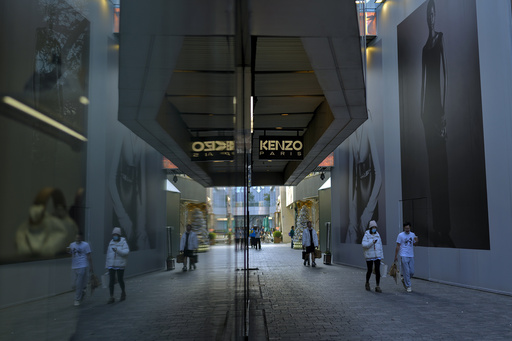
HONG KONG — A senior official from China’s Ministry of Commerce has asserted that imposing higher tariffs on Chinese exports may lead to unintended consequences, primarily resulting in increased costs for consumers. This statement was made in response to U.S. President-elect Donald Trump’s proposal to implement a staggering 60% tariff on imports from China. Vice Commerce Minister Wang Shouwen emphasized that such measures would not address the underlying trade deficit issues faced by the United States.
Wang explained during a news conference that high tariffs would raise costs for U.S. consumers, leading to heightened inflation as the country pays more for imports from China and other nations. The Vice Minister expressed China’s readiness to engage in discussions with the U.S., seeking a cooperative relationship that would be advantageous for both countries. “We believe that maintaining a stable, healthy, and sustainable trend in economic and trade relations will benefit everyone,” he stated.
According to Wang, China’s total foreign trade—including both imports and exports—reached 36 trillion yuan (almost $5 trillion) from January to October, showing a growth of around 5% compared to the same timeframe in 2023. However, despite this encouraging trade data, the looming threat of increased tariffs adds pressure to China’s economy. The ruling Communist Party is currently grappling with efforts to stimulate growth amid challenges such as a downturn in the property sector, rising local government debts, and high youth unemployment.
Analysts have indicated that implementing a 60% tariff could significantly reduce China’s projected economic growth by approximately 2.5 percentage points, or about half, as outlined in a report from UBS earlier this year. During the recent news briefing, Wang and his colleagues discussed China’s strategies for enhancing trade and tackling climate change as part of their ongoing economic initiatives.
Measures announced to bolster trade include simplifying customs processes and visa regulations. For instance, China currently allows visa-free entry for citizens from 29 nations, including countries like France and Germany, and there has been a notable increase in foreign visitors this year following the pandemic-induced decline. Tong Xuejun, an official in the Foreign Ministry’s consular department, revealed that of the nearly 8.2 million foreign visitors recorded from July to September, a significant portion entered the country through visa-free channels.
